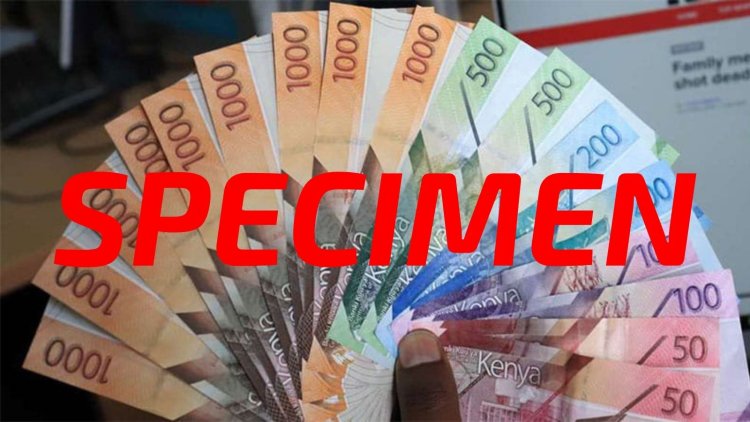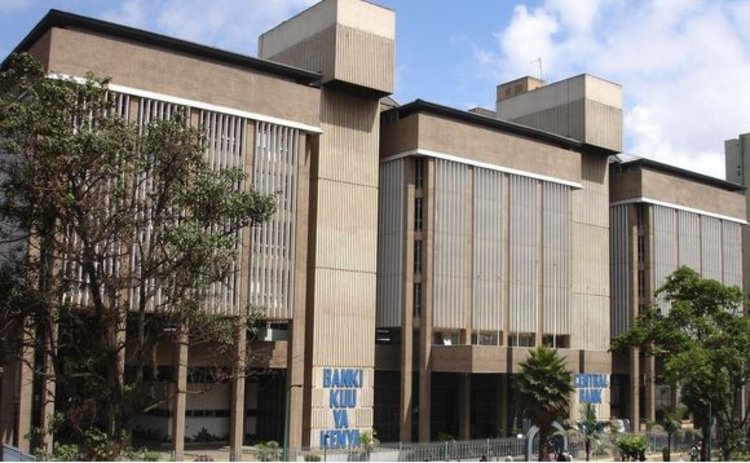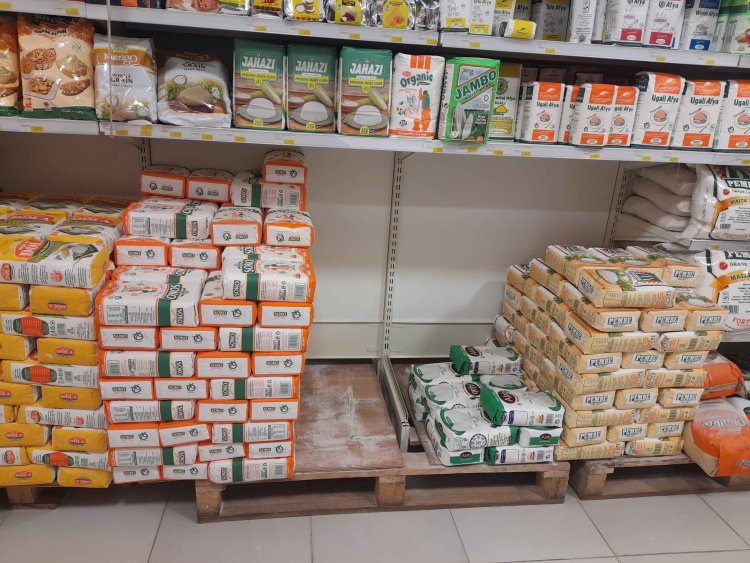How Value of Ksh1,000 Has Dropped During Uhuru's Term
The depreciation in the note has had a significant effect on its purchasing power.

In the entire 10 years of President Uhuru Kenyatta’s administration, the value of a Ksh1,000 note has dropped by nearly half which has affected many Kenyans economically.
The highest value note, for example, was worth Ksh1,000 in July 2013. Today, the value of the note is set at Ksh548.60.
The depreciation in the note has had a significant effect on its purchasing power. This is the value of a currency expressed in terms of the number of goods or services that one unit of money can buy.
Usually, the drop in buying power is attributed to factors such as the cost of food and fuel going up, slow growth in real wages, depreciation against hard currencies and economic shocks that raise the cost of production and basic goods.

An image of the Central Bank of Kenya. /FILE
Other factors include corruption and mismanagement, weak currency, taxes and external factors such as conflict.
The depreciation of the shilling as a result of both internal and external shocks to the economy has also contributed to the decline in purchasing power. Inflation has averaged 6.2 per cent in the last 10 years.
The shilling has dropped by 38 per cent in the past decade, the equivalent of shedding 33 units against the dollar to exchange at 118.90 units today.
For Kenyans, the Russia-Ukraine conflict coupled with the COVID-19 pandemic has seen them go through negative timelines mainly due to the high cost of living. The conflict caused a disruption in global supply chains which sparked a global food and fuel crisis, with the food crisis made worse by periodic drought.
The invasion saw oil prices shoot up to levels never seen before in history, which has led to fuel prices going up to unseen levels. For instance, the cost of a litre of petrol right now goes for Ksh159.94 in Nairobi, up from Ksh111.30 in July 2013.
Without the subsidy being paid by the government, Kenyan motorists would have to pay a whooping Ksh209.78 per litre.
Electricity charges have also gone up, with the lowest tariff going from Ksh10.16 per unit in 2013 to Ksh15.94 today.
In terms of food, products such as a half-litre packet of milk that cost Ksh38 in 2013 is retailing at Ksh58 at the moment, while the average price of a kilogram of beef has rocketed to Ksh521 from Ksh343 a decade ago.
Arguably the staple food product in the country, maize flour (unga), has not been spared from the price hike in Kenya. A 2kg packet of unga was retailing between Ksh200 and Ksh250 from a low of Ksh120, a 67 per cent increase in just three months.
President Uhuru then intervened on Wednesday, July 20 and lowered the prices of unga to Ksh100 per 2kg down from Ksh205, until otherwise stated. However, the directive is still to come into effect as spot checks revealed that most supermarkets sell unga between Ksh200 and Ksh250.
To make matters worse, some outlets have been having empty shelves and according to retailers who spoke to Viral Tea, the usual restocking of unga has been on a go-slow.
Explaining the reason why the subsidized Ksh100 unga has not hit the shelves, Agriculture Principal Secretary Francis Owino blamed it on an existing agreement between millers and retailers.

Maize flour being sold at a supermarket. /MARVIN CHEGE.VIRALTEAKE
Speaking on Monday, August 1, Owino explained that maize millers were afraid of selling their flour to supermarkets and other retailers over a longer credit period leading to the shortage.
"Our millers are not able to supply flour to the supermarkets because of the 45 day contractual arrangement. Our plea is for the two parties to reflect and consider that contractual agreement to align with the commitments of government," Owino explained.
Agriculture Cabinet Secretary, Peter Munya responded by launching a nationwide crackdown on millers hoarding the maize flour to cause the man-made shortage.
The drop in maize flour prices was a timely one as wages have failed to keep up with the pace of inflation. A person who was earning Ksh100,000 in 2013 is now getting Ksh96,200 right now, once the average wage increase has been adjusted for inflation.

 admin
admin 




